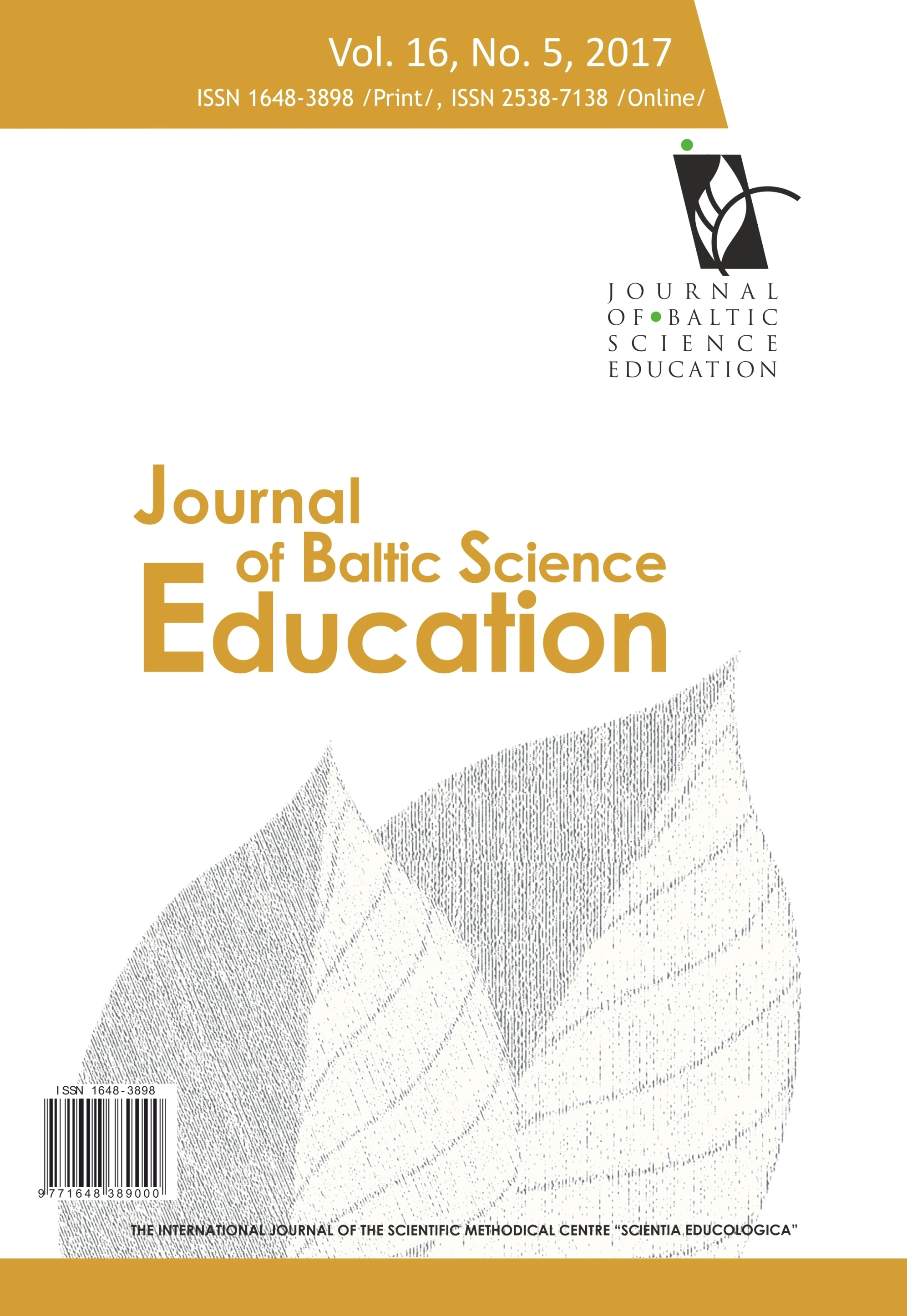PHYSICS ANXIETY OF PRE-SERVICE TEACHERS AND THEIR SELF-EFFICACY BELIEFS: DIFFERENCES ACCORDING TO GENDER AND PHYSICS ACHIEVEMENT
PHYSICS ANXIETY OF PRE-SERVICE TEACHERS AND THEIR SELF-EFFICACY BELIEFS: DIFFERENCES ACCORDING TO GENDER AND PHYSICS ACHIEVEMENT
Author(s): Serap ÇalışkanSubject(s): Education, School education, Pedagogy
Published by: Scientia Socialis, UAB
Keywords: physics anxiety; physics self-efficacy; pre-service teachers' gender; physics achievement;
Summary/Abstract: The aim of this research is to determine the predictive level of physics self-efficacy with regard to physics anxiety and the correlations between the physics anxiety and self-efficacy of pre-service teachers, also to examine whether physics anxiety and self-efficacy beliefs differ depending on pre-service teachers' achievement in physics and their gender. The research was conducted with 344 pre-service teachers enrolled at a state university in Turkey. The data obtained were analyzed using means (M), standard deviation (SD), simple regression analysis, the one-way multivariate analysis of variance (one-way MANOVA) and as a follow-up test, the univariate analysis of variance (univariate ANOVA). The outcome of the research indicating the physics anxiety of the pre-service teachers was a significant predictor of their physics self-efficacy, significant differences between physics anxiety and self-efficacy depending upon the level of achievement in the physics course, also showing that in general, female pre-service teachers had significantly higher levels of anxiety compared to males and that with respect to self-efficacy, differences were in favor of male pre-service teachers only in the dimension of problem-solving in physics.
Journal: Journal of Baltic Science Education
- Issue Year: 16/2017
- Issue No: 5
- Page Range: 678-693
- Page Count: 16
- Language: English

